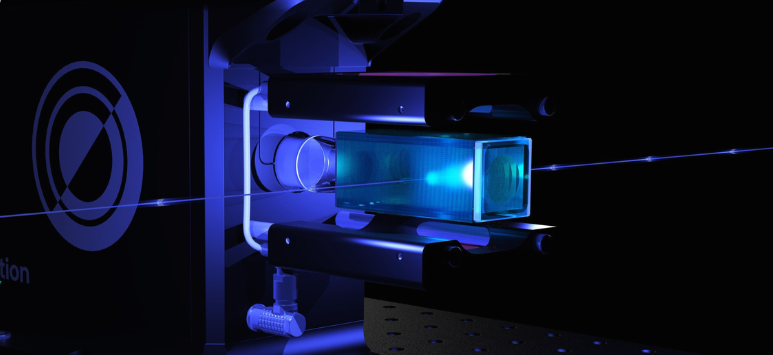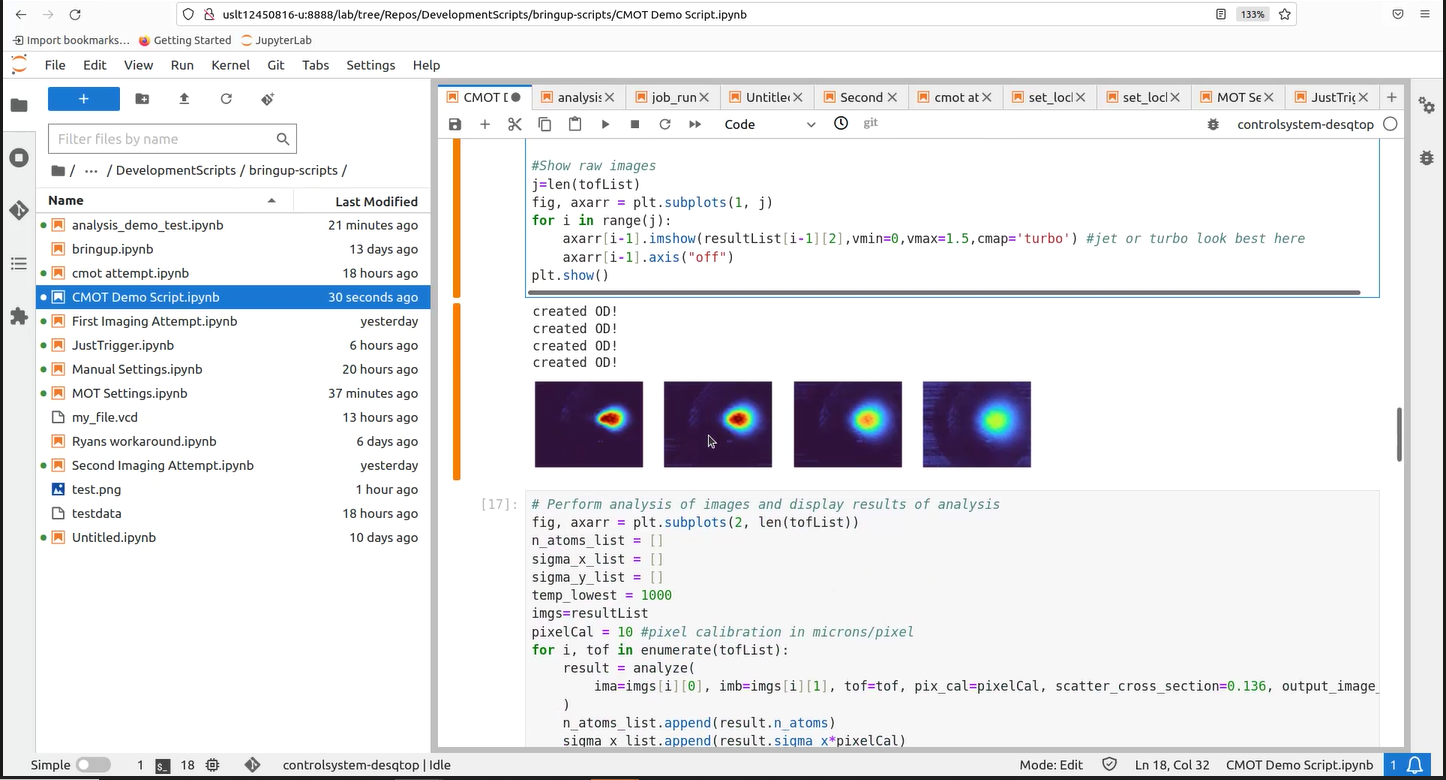
The World’s Only Commercially Available Cold Atom Platform for Quantum Education and Workforce Development
Explore, educate, and empower the workforce of tomorrow with the desqtopMOT cold atom platform
Start Your Quantum Journey Today
Explore the desqtopMOT Experience
Hear from Chuck Williams, our Product Manager, and Evan Salim, our Quantum Fellow and Lead Prototype Engineer, about the desqtopMOT: The world’s only commercially available cold atom platform.
What can I do with the desqtopMOT?
Gain hands-on experience with atomic physics – from light-matter interaction and atom fluorescence to revealing the energy levels of rubidium atoms through spectroscopy.
The desqtopMOT exposes students to real cold atom quantum hardware and builds up a student’s knowledge of cold atom physics to the point of actually creating a magneto-optical trap (MOT) cloud of atoms. After that, users will characterize the size and temperature of the Rb MOT and explore the unique physical properties of cold atoms.
Basics of atomic physics
Spectroscopy
Light-matter interaction
Practical geometrical optics (laser beam delivery and diagnostics)
Light polarization
Absorption spectroscopy
Doppler broadening
Laser trapping and cooling
Zeeman effect
Faraday rotation
Experimental analysis
Error estimation
Technical report writing
Bennett Brown, Executive Director of QuSTEAM
“With the desqtopMOT platform and teaching curriculum, students can begin exploring the cutting edge in quantum information science, generating and testing hypotheses about light-matter interaction with cold atoms. Busy educators and instructors appreciate this tool."
Who is desqtopMOT for?
4-year colleges and Master’s programs wanting a turn-key lab course solution
Community colleges building the next wave of the quantum workforce
Commercial companies and defense primes that need to accelerate their position in cold atom quantum technology – first through ready-out-of-the-box training, then as an early quantum applications development platform
The desqtopMOT offers students an immersive experience, guiding them through a comprehensive journey that starts with understanding the basic theory of using laser light and magnetic fields to create atomic samples.
With just a touch of a button, students can explore the practical steps involved in conducting quantum experiments.
Serving as a practical quantum platform, it empowers students to become comfortable and confident in creating and controlling cold atoms.
The desqtopMOT is a starting point for students to explore commercial applications, such as atom-based timekeeping, sensing, and computing.
User-friendly all-in-one cold atom platform
The desqtopMOT is the world’s first and only commercially available platform that offers users the following:
Vacuum system
Atom source (Rb)
Beam delivery optics and breadboard
Stabilized laser system, including all control electronics
Reference spectroscopy cell
Comprehensive teaching curriculum
Delivered as a complete standalone system, the desqtopMOT can be installed and operational in hours.
Built around our award-winning miniMOT V2, the desqtopMOT offers two levels of learning:
Base Model
Start your quantum journey today
Atomic physics
Experiments with thermal atoms
Doppler-free spectroscopy
Laser cooling atoms and MOT creation
5-chapter curriculum with 8 experiments
Advanced Model
Taking cold atoms to the next level
All Base Model features
Advanced optics and measurement tools
GUI via Jupyter Notebook
Programmable laser tunability
Expanded curriculum with 5 new experiments, including EIT and Faraday rotation
PRE-ORDER TODAY
Upgrade your Experience
Expanding from the Base to the Advanced platform is straightforward as your expertise grows. With a modular design, upgrading the desqtopMOT laser hardware enables access to advanced experiments involving cold atom MOTs and expands the teaching curriculum to cover 13 total experiments.* Base model available Fall 2024.
*As of January 10, 2024
Why cold atoms?
What is a MOT?
An MOT uses lasers to cool atoms and specially configured magnetic fields in a Nobel Prize-winning technique to create a trap to form an ensemble of atoms. Due to its floating boundary-less appearance, this is often called a “cloud” of atoms.
A photo of an Rb MOT cloud inside a cell. Image courtesy of Allie Weary, Hannes Bernien Lab at the University of Chicago.
What can MOTs do?
MOTs are ideal for educators, researchers, and quantum engineers to probe fundamental quantum effects using cold atoms and explore new atom-sensing applications.
Start your journey today and become a quantum expert with the desqtopMOT
Case Study: Measuring MOT Temperature via Time-Resolved Imaging of the MOT Cloud
In the Advanced Model, users will communicate with the miniMOT V2 vacuum system, the laser system, and an embedded controller using Python scripting via a Jupyter Notebook interface. In the example shown, a script communicates with a camera imaging the MOT. The script starts with the desqtopMOT unit powered on, warmed up, and the laser beams properly aligned for MOT creation.
An image is taken of the background
The MOT is loaded by activating the magnetic and optical fields
The MOT is released (magnetic field and laser light turned off)
The MOT is re-imaged at a programmed delay “time of flight” (3 ms), and a colorized atom density plot is generated on the display screen. This plot shows the MOT cloud dispersing with no magneto-optical input to keep the atoms trapped and cooled.
A Gaussian fit of the MOT image is calculated and plotted alongside the original colorized image.
The delay between MOT release and imaging (the time of flight) is slightly increased to 5ms (preprogrammed by the user into the script), and the process is repeated.
This results in a time-resolved picture of the MOT dissipating without trapping and cooling forces, which is directly correlated to the temperature of the MOT cloud achieved with the input parameters!
The embedded controller has additional data acquisition inputs. When combined with a suitable large-area photodetector, the user can simultaneously measure atom density by detecting optical NIR fluorescence.











